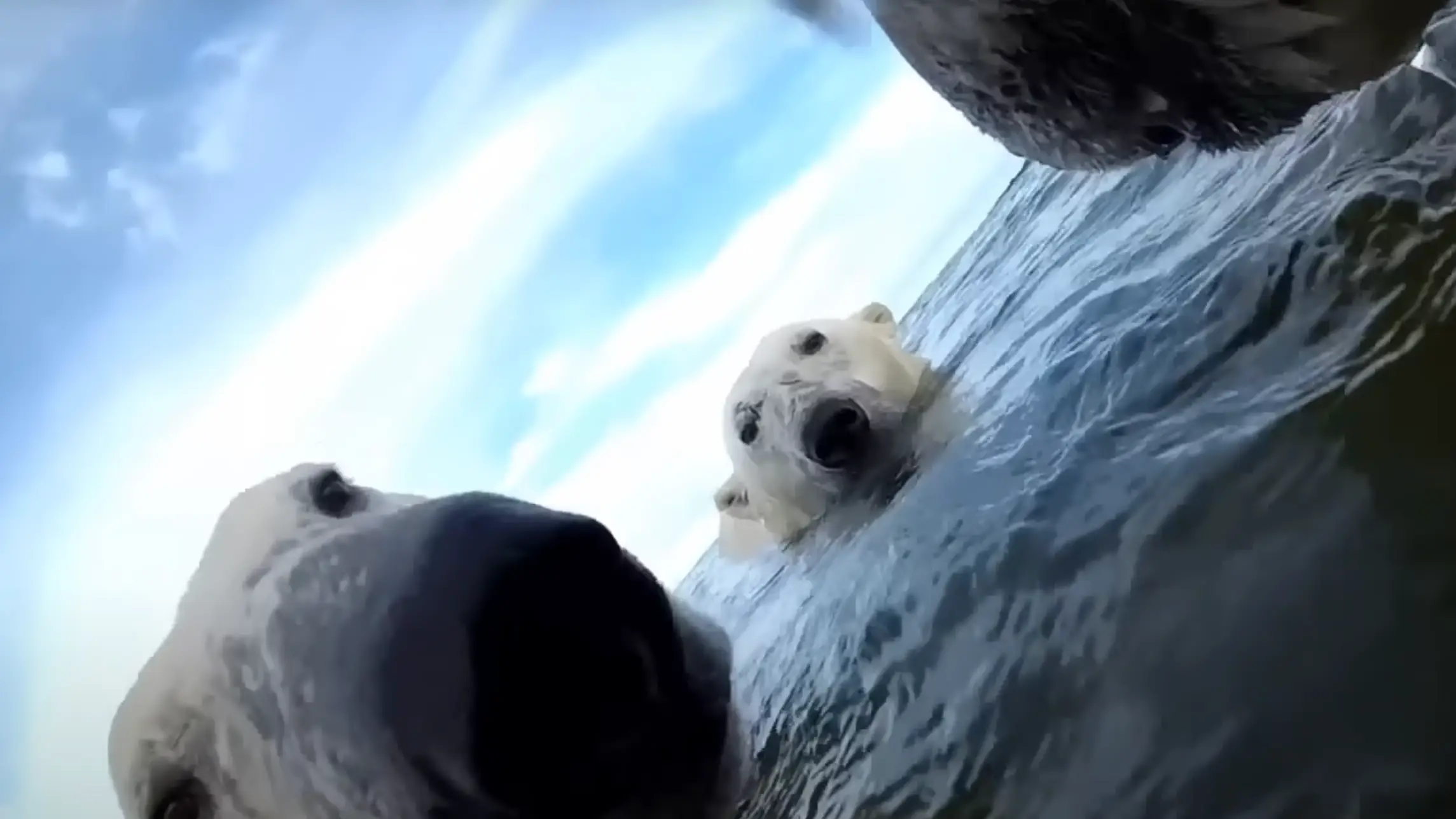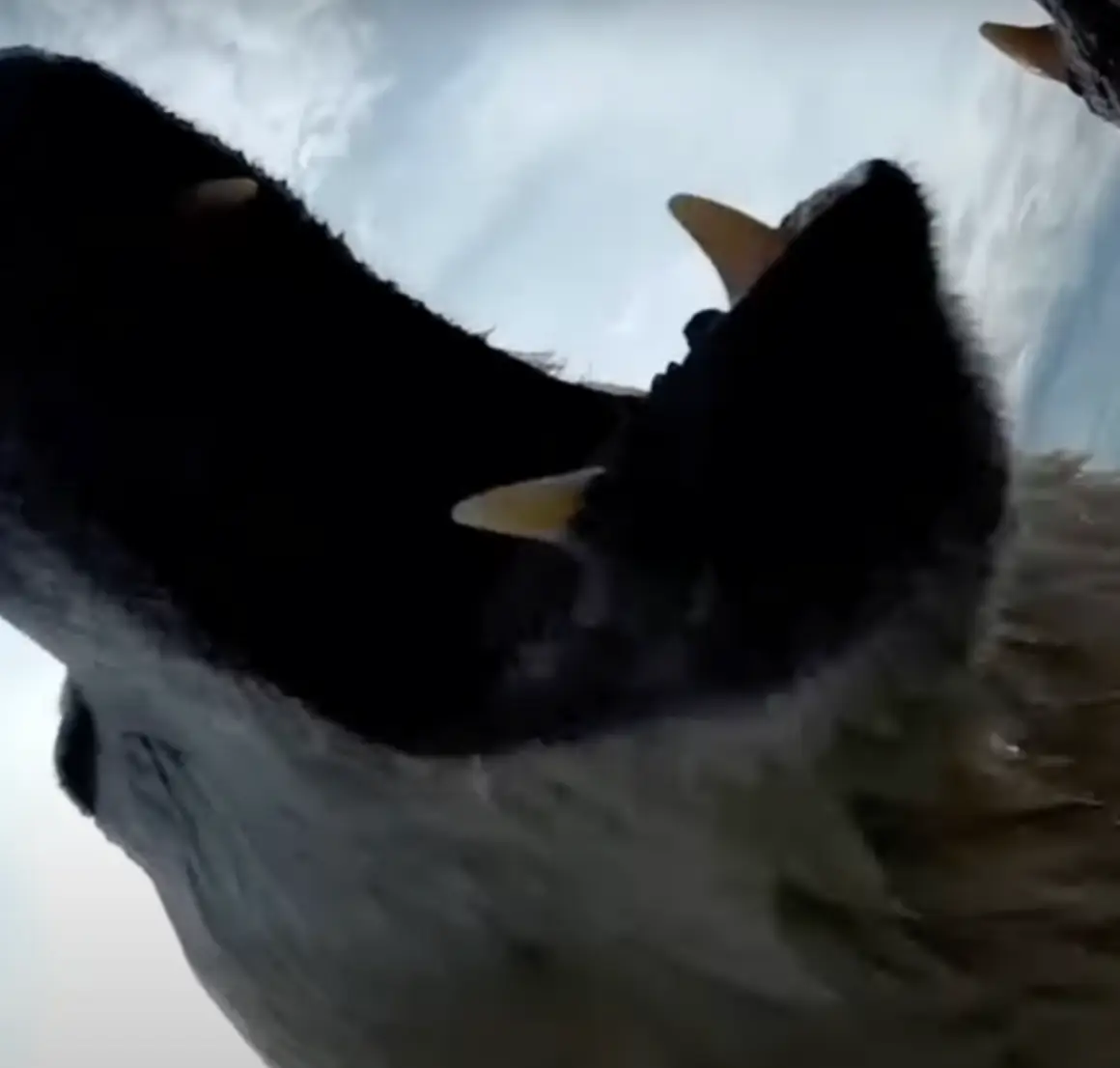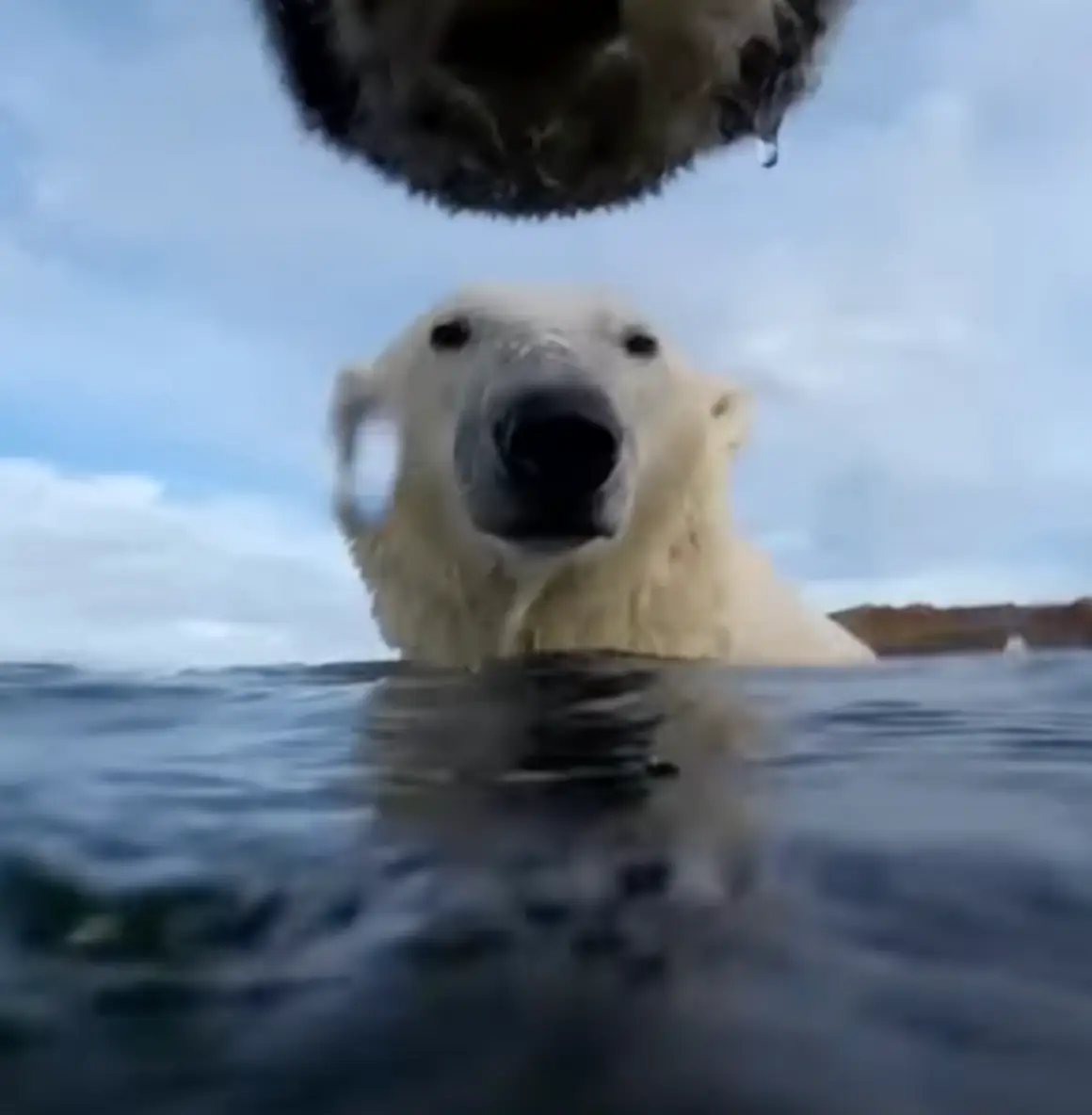
Scientists have been rocked to their cores over what they found after starting an experiment where they strapped cameras to polar bears.
We all know polar bears are struggling with climate change, and they've even now been listed as a 'vulnerable' species on the endangerment scale by the IUCN Polar Bear Specialist Group since this became apparent.
Sadly, global warming has resulted in ice melting in their native land, which is an essential part of them being able to hunt and climb out of the water.
Now that climate change is slowly lowering the number of weeks per year the Arctic is covered in ice, polar bears are spending more time than ever up on land, where high-calorie food is scarce.
Advert
With that, scientists attached cameras to 20 polar bears in Hudson Bay, Canada, to find out what is happening with the bears, and how they are coping with this change.
What did scientists find from the video?
In this area, the ice-free period is three weeks longer now than it was in 1979, according to a study published in the Nature Communications journal.
Over 115 hours of footage were captured over three years, giving the public a rare insight into the life of a polar bear from its point of view.
Throughout the clips, the polar bears can be seen feeding on bird carcasses, eating berries and grass, feasting on marine animals, as well as play-fighting with each other in the water and chewing on antlers.
Anthony Pagano, wildlife biologist at the US Geological Survey (USGS) and leader of the study spoke on their findings to Vox: “We were amazed by the video footage.
“The video footage really highlighted how intelligent these animals are by using different behaviour strategies to survive their time on land while without access to their primary prey."
What impact are the findings expected to have?

Scientists had predicted that polar beats might cope with increased time on land by resting to save energy or filling up on other prey such as plants and seabirds.
It turns out that they used both, according not just to the footage but other data collated by the scientists such as energy burned and measurements of movement.
Despite the split in approaches among the polar bears, neither was successful, with all but one of the 20 subjects losing weight.
One even lost nearly 80 pounds, something that was incredibly alarming to the researchers.
The polar bears were also revealed to be taking longer swims, which is 'unexpected for this time of year', according to polar expert at the University of Alberta Andrew Derocher.
Derocher further explained: "These are possibly acts of desperation. Hungry and skinny bears take more risks than fat bears.
“This study really brings home the message that there’s no salvation from terrestrial feeding to help polar bears through the ice-free period,” he stated, referencing that eating berries and smaller prey isn't helping them in the long-term.
The polar bear population in this area is estimated to have fallen 30% since 1987, with this study proving that further global warming will make it even harder for the species to survive.
Areas in Greenland and Svalbard have seen the species hunt using ice that breaks off glaciers year-round, but it is not perceived as positive news but framed as a last gasp attempt to stay alive.

How can it be stopped?
Well, that’s a hard thing to ask.
Whether we collectively reverse the effects of global warming or move all of the polar bears somewhere that’s icy year-round like the North Pole, it’s unlikely that we can save them all without drastic measures.
According to the charity Polar Bears International, there is a lot that needs to be done to ensure their safety.
The website claims: “As scientist Katharine Hayhoe says, when it comes to global climate warming and a future for polar bears, ‘we need all options on the table and all hands on deck.’
“The key to saving sea ice for polar bears and getting the climate back to functioning the way it should is to get away from using fossil fuels for energy all together.”
Topics: Animals, Science, Global Warming, Environment
